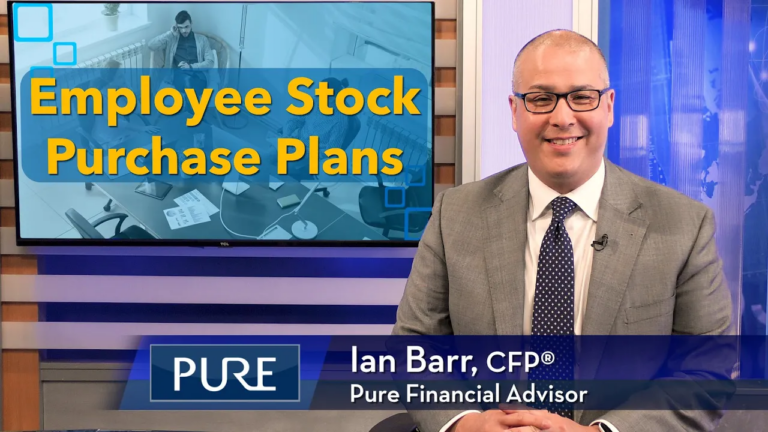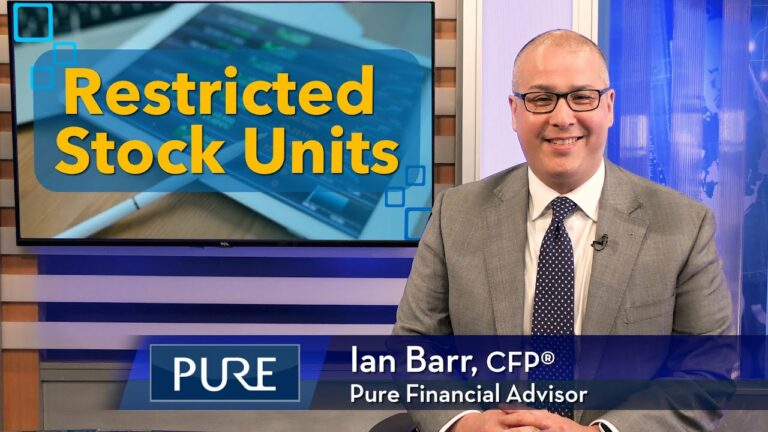Are you protecting your life legacy and keeping the money in your family? Both a will and a trust do two things: they both distribute property out in an orderly way and allow you to amend it over your lifetime, but that’s where the similarities end. Pure’s Senior Financial Planner, Bryan Ross, CFP®, AIF® explains the difference.
FREE GUIDE | Estate Plan Organizer
Transcript
While wills and trusts do have a lot of overlap, there are also several differences between the two. Ultimately, both are ways to spell out who will receive your assets. One big difference between the two is in how and when they take effect. Wills don’t go into effect until you pass away, a trust is effective immediately upon signing and funding it.
Wills may be easier to think of as a “simple” document. Wills allow you to: name guardians for your kids and pets, designate where your assets go, and specify final arrangements. While this is an easier process, the simplicity of a will does come with some drawbacks. For example, wills most likely have to go through some sort of probate process after you pass away and this can make the documents become public.
In most cases, you cannot use your will to leave behind: property you hold in joint tenancy with someone else, proceeds of a life insurance policy for which you’ve named a beneficiary, money in a pension plan, individual retirement account (IRA), 401(k) plan, or any other retirement plan for which you’ve named a beneficiary on forms provided by the account administrator.
Trusts are a little more complex to set up but they have two major benefits over wills: allowing your assets to avoid the probate process and protecting the privacy of you and your beneficiaries.
Similar to a will, there are also several that you shouldn’t include in your trust. While you can transfer ownership of your retirement accounts into your trust, estate planning experts usually don’t recommend this. If improperly set up, this can trigger income taxes on these assets unintentionally. This includes individual retirement accounts (IRAs), 401(k) accounts, and 403(b) accounts. Since HSAs and MSAs are tax-free assets, you can’t transfer them to a living trust. These assets are more efficiently distributed by naming beneficiaries. Vehicles can be a bit tricky when it comes to whether or not to include them in your living trust. Everyday vehicles, like cars, that are bought and sold regularly, it’s probably not worth the extra paperwork and hassle of re-titling your car in the name of your trust.
Keep in mind that after you create a trust, you also need to fund it by transferring assets to it, making the trust the owner. To do this, you physically change the titles of your assets from your individual name to the name of your trust. The trustee you name will control the assets in your trust. Now most likely, you have named yourself as trustee initially, so you will still have complete control over it during your life. To ensure that your trust contains all of your assets, you will also need a “pour-over will,” which names the trust as your estate beneficiary. This protects your wishes in case there assets your forgot into transfer to your trust.
So which option is right for you – a will or a trust? Get your questions answered, schedule a free financial assessment right online with Pure Financial Advisors and find out today.
Subscribe to our YouTube channel.
IMPORTANT DISCLOSURES:
• Investment Advisory and Financial Planning Services are offered through Pure Financial Advisors, LLC, a Registered Investment Advisor.
• Pure Financial Advisors LLC does not offer tax or legal advice. Consult with your tax advisor or attorney regarding specific situations.
• Opinions expressed are subject to change without notice and are not intended as investment advice or to predict future performance.
• Investing involves risk including the potential loss of principal. No investment strategy can guarantee a profit or protect against loss in periods of declining values.
• All information is believed to be from reliable sources; however, we make no representation as to its completeness or accuracy.
• Intended for educational purposes only and are not intended as individualized advice or a guarantee that you will achieve a desired result. Before implementing any strategies discussed you should consult your tax and financial advisors.
CFP® – The CERTIFIED FINANCIAL PLANNER™ certification is by the Certified Financial Planner Board of Standards, Inc. To attain the right to use the CFP® designation, an individual must satisfactorily fulfill education, experience and ethics requirements as well as pass a comprehensive exam. Thirty hours of continuing education is required every two years to maintain the designation.
AIF® – Accredited Investment Fiduciary designation is administered by the Center for Fiduciary Studies fi360. To receive the AIF Designation, an individual must meet prerequisite criteria, complete a training program, and pass a comprehensive examination. Six hours of continuing education is required annually to maintain the designation.











